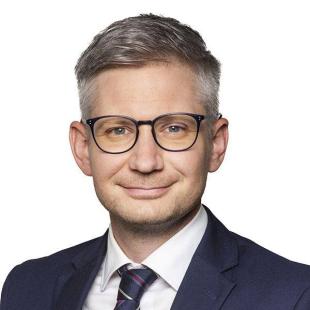Legislative frameworks to combat illicit trade in medical products in the Czech Republic

- What legislative framework is there to combat illicit trading and other illegal activities in counterfeited/falsified/diverted medicines in your jurisdiction?
- What other products apart from medicines are covered by the above legislative framework in your jurisdiction (i.e. medical devices, veterinary medicines, cosmetics)?
- Are illicit trading, counterfeiting/falsification and other illegal activities involving medicines regarded as a separate group of crimes in your jurisdiction, or are they prosecuted as crimes in more general categories, such as intellectual property or fraud?
- Has the Medicrime convention been ratified in your jurisdiction? If so, how is it implemented?
- What types of liability exist in your jurisdiction for counterfeiting/falsification of medicines (and other products, if applicable)? Is separate liability provided for falsification/counterfeiting of biologics (e.g. vaccines)?
- Which state bodies/agencies are involved in anti-counterfeiting activities regarding medicines (and other products, if applicable) in your jurisdiction, and what are their roles? What is the role of the Pharmaceutical inspectorate in anti-counterfeiting activities in your country?
- How can the manufacturers, MAHs or IP rights holders for affected products be engaged in investigations regarding illicit trade/counterfeiting/falsification, and what rights do they have during such investigations?
- Is it possible to recover damages caused by the counterfeiting/falsification of a medicine (or other products, if applicable)?
- Is it possible to sell medicines, medical devices and veterinary medicines online in your jurisdiction? If so, what are the specific rules and restrictions around these activities?
- What protective measures and safety features (e.g. 2D verification, anti-tampering devices or other labelling requirements) are required in your jurisdiction to combat illicit trading and counterfeited/falsified medicines?
- Are there any legislative developments in your jurisdictions in the sphere of combating illicit trading and other illegal activities involving counterfeited/falsified medicines (and other products, if applicable)?
1. What legislative framework is there to combat illicit trading and other illegal activities in counterfeited/falsified/diverted medicines in your jurisdiction?
There are three general legislative frameworks in the Czech Republic to combat illicit trade and other illegal activities connected with counterfeited/falsified/diverted pharmaceuticals:
- civil law framework based on the breach of rules primarily regulating unfair competition and the protection of intellectual property;
- regulatory/administrative law framework on the basis of the breach of rules set forth primarily by the Pharmaceuticals Act and IP laws; and
- criminal law framework which may also apply in the most severe cases.
2. What other products apart from medicines are covered by the above legislative framework in your jurisdiction (i.e. medical devices, veterinary medicines, cosmetics)?
In general, counterfeited/falsified/diverted products can be challenged with all the above measures.
3. Are illicit trading, counterfeiting/falsification and other illegal activities involving medicines regarded as a separate group of crimes in your jurisdiction, or are they prosecuted as crimes in more general categories, such as intellectual property or fraud?
Illicit trading, counterfeiting/falsification and other illegal activities involving medicines are indeed prosecuted as crimes in general categories, as there is no separate group of crimes dedicated solely to medicines in the Czech Criminal Code.
4. Has the Medicrime convention been ratified in your jurisdiction? If so, how is it implemented?
No.
5. What types of liability exist in your jurisdiction for counterfeiting/falsification of medicines (and other products, if applicable)? Is separate liability provided for falsification/counterfeiting of biologics (e.g. vaccines)?
Depending on the severity of the illegal activity, there could be:
- Civil law liability, i.e. liability for the breach of a legal obligation provided by private laws or contracts. Non-contractual liability must in most cases be assessed by civil courts in a judicial dispute because infringers do not usually accept liability.
- Administrative law liability, i.e. liability for the breach of a legal obligation provided by either public or private laws. In such case, the respective regulatory authority must commence administrative offence proceedings (either on the basis of a complaint filed by a third party or ex officio) and establish the offender’s liability.
- Criminal law liability, i.e. liability for the most severe breach of a legal obligation provided by private or public laws. In such case, the respective criminal authority must commence a criminal proceedings (either on the basis of a complaint filed by a third party or ex officio) and establish the offender’s liability. The Czech Republic recognises the criminal liability of both individual persons as well as legal entities.
We also note that civil law liability and administrative/criminal law liability can usually be applied in parallel and the remedies requested separately.
There is no specific liability for the falsification/counterfeiting of biologics (e.g. vaccines), i.e. the above specified liabilities apply mutatis mutandis.
6. Which state bodies/agencies are involved in anti-counterfeiting activities regarding medicines (and other products, if applicable) in your jurisdiction, and what are their roles? What is the role of the Pharmaceutical inspectorate in anti-counterfeiting activities in your country?
The State Institute for Drug Control is the primary regulatory authority of pharmaceuticals and medical devices.
The Institute for the State Control of Veterinary Biologicals and Medicine is the primary regulatory authority of veterinary medicines.
The Czech Ministry of Health is the primary regulatory authority of cosmetics.
Other state bodies might be involved in anti-counterfeiting activities, depending on the nature of the activities and involved products. Those bodies include, e.g., courts, customs and financial authorities, trade licensing authorities, regional veterinary authorities, and police.
7. How can the manufacturers, MAHs or IP rights holders for affected products be engaged in investigations regarding illicit trade/counterfeiting/falsification, and what rights do they have during such investigations?
Manufacturers, MAHs and IP rights holders are usually the injured partis in the administrative or criminal proceedings, because their rights have been negatively affected by the offenders and in most cases the offenders either caused damage to the right holders or obtained unjust enrichment to the detriment of the right holders.
Under Czech law, injured parties have the right to request the respective authority to oblige the offender to compensate the damage caused and pay for unjust enrichment. The injured parties also have the right to review the administrative/criminal files, be present at investigative acts and at oral hearings, propose evidence to be supplemented and submit statements in the matter.
8. Is it possible to recover damages caused by the counterfeiting/falsification of a medicine (or other products, if applicable)?
Manufacturers, MAHs and IP rights holders can request, in all civil law, administrative law and criminal law proceedings, that the offender (infringer) compensates for the damage caused, pays for the unjust enrichment, and pays for falsification of products.
In civil law proceedings, the Manufacturers, MAHs and IP rights holders can also (and primarily) request the infringer to cease and desist from the infringing activity, remedy the unlawful state, and also compensate for immaterial harm (either by non-monetary satisfaction, e.g. by apology, or by monetary satisfaction).
In cases where IP rights are infringed, the holders can also request the infringer to disclose information on the origin and distribution networks of the goods or services which infringe intellectual property rights, and the court can order, at their request and at the expense of the infringer, appropriate measures for the dissemination of the information concerning the decision, including displaying the decision and publishing it in full or in part.
It is also possible to request interim measures under Czech law, e.g. interim cease and desist and the production of evidence production.
9. Is it possible to sell medicines, medical devices and veterinary medicines online in your jurisdiction? If so, what are the specific rules and restrictions around these activities?
Yes, in general it is possible to sell medicines, medical devices and veterinary medicines online.
For the online sale of pharmaceuticals, the following elementary requirements must be met:
- only a pharmacy can sell online;
- a pharmacy needs to notify the State institute for Drug Control before it commences, suspends or ceases online sales;
- only registered pharmaceuticals which are not limited in dispensing can be sold online, e.g. Rx pharmaceuticals and pharmaceuticals containing addictive substances cannot be sold online;
- internet pages need to meet certain requirements and include certain information.
Similar rules also apply to online sales of veterinary medicines. The Institute for the State Control of Veterinary Biologicals and Medicine needs to be notified in advance.
Online sales of medical devices are not as heavily regulated as the online sale of pharmaceuticals. The law briefly states that it is not possible to sell online medical devices which can harm a person if they are not used under the supervision of a healthcare professional or if they are prescription based. Otherwise, “only” general rules must be followed, e.g. rules on the protection of consumers.
10. What protective measures and safety features (e.g. 2D verification, anti-tampering devices or other labelling requirements) are required in your jurisdiction to combat illicit trading and counterfeited/falsified medicines?
Under EU Directive 2011/62/EU, the Falsified Medicines Directive (the “FMD”), the non-profit organisation NOOL was founded on 6 March 2017 to ensure the development and management of the National Medicines Verification System. Marketing authorisation holders and parallel distributors that market products in the Czech Republic must ensure that prescription-only medicine packs released in the Czech market carry unique identifiers and anti-tamper devices according to the FMD and the data for the products are uploaded to the system.
In addition, manufacturers and distributers are required to follow the rules on the Good Manufacturing and Distribution Principles.
11. Are there any legislative developments in your jurisdictions in the sphere of combating illicit trading and other illegal activities involving counterfeited/falsified medicines (and other products, if applicable)?
We are not aware of any new legislative developments relating specifically to combating illicit trading and other illegal activities involving counterfeited/falsified medicines.





